CANNABIS WITH JASON LEE GONZALEZ | E009 PODCAST
LISTEN TO THIS EPISODE ON ALL STREAMING SERVICES
ABOUT THE GUEST
Jason Lee Gonzalez sits down with George Stroumboulis on the Invigorate Your Business Podcast.
Jason Lee Gonzalez is a professional grower of cannabis, with the experience and education necessary to cultivate cannabis on an industrial scale. Jason has an entrepreneurial background with having started and successfully exited several business across several industries.
Jason is originally from Miami, Florida, now living in California. He continues to consult in the Cannabis space and operates several ventures in this arena. Stay connected with Jason via his social media channels and his company Green Mountain Natural.
INSTAGRAM: https://www.instagram.com/green_mountain_natural/
“My personal experience is that I’ve found that, you know, after having an experience on LSD, it’s allowed me to become really introspective, connected with the people that I care about, feeling a deep sense of gratitude for people.”
MEDIA RELATED TO THE EPISODE
Jason Lee Gonzalez sits down with George Stroumboulis on the Invigorate Your Business Podcast to talk about all things cannabis, drugs and the growth of weed from a commercial perspective.
George Stroumboulis sits down with Jason Lee Gonzalez in Newport Beach, California to talk about all things cannabis, drugs and the growth of weed from a commercial perspective.
Jason Lee Gonzalez is a master in the marijuana growth arena, having perfected the growing of cannabis on a commercial level.
George Stroumboulis chatting with Jason Lee Gonzalez at the studio in Newport Beach, California.
ABOUT THE “INVIGORATE YOUR BUSINESS” PODCAST
The Invigorate Your Business with George Stroumboulis podcast features casual conversations and personal interviews with business leaders in their respective fields of expertise. Crossing several industry types and personal backgrounds, George sits down with inspiring people to discuss their business, how they got into that business, their path to the top of their game and the trials and tribulations experienced along the way. We want you to get inspired, motivated, and then apply any advice to your personal and professional lives. If there is at least one piece of advice that resonates with you after listening, then this podcast is a success. New episodes weekly. Stream our show on Spotify, YouTube, Apple, Amazon and all other platforms.
ABOUT GEORGE STROUMBOULIS
George Stroumboulis is an entrepreneur to the core, having launched several ventures across multiple industries and international markets. He has held senior-level positions at progressive companies and government institutions, both domestically and internationally, building an extensive portfolio of business know-how over the years and driving profit-generating results. George’s ability to drive real change has landed him in several media outlets, including the front page of the Wall Street Journal. George was born in Toronto, Canada to his Greek immigrant parents. Family first. Flying over 300,000 miles a year around the world puts into perspective how important family is to George’s mental and emotional development. With all this travel to global destinations, the longest he stays even in the most far-out destination is 3 days or less - a personal rule he lives by to make sure he is present and involved in family life with his wife and three daughters. To read about George’s global travels, stay connected with his blog section.
STAY CONNECTED WITH GEORGE STROUMBOULIS
STREAM & LISTEN TO THE PODCAST:
SPOTIFY: https://open.spotify.com/show/1rW2CmxQoiJNEPOZupJlvd
YOUTUBE: https://www.youtube.com/user/Stroumboulis
APPLE iTUNES: https://podcasts.apple.com/us/podcast/invigorate-your-business-with-george-stroumboulis/id1607693240
AMAZON MUSIC: https://music.amazon.com/podcasts/8fc03929-71b3-483a-a64e-153e30b3d462/invigorate-your-business-with-george-stroumboulis
iHEARTRADIO: https://www.iheart.com/podcast/269-invigorate-your-business-w-92187370/
STROUMBOULIS SITE: https://www.stroumboulis.com/podcast
PODCAST SITE: http://www.invigorateyourbusiness.com
OTHER SERVICES: GOOGLE, PANDORA, OVERCAST, CASTRO, CASTBOX, PODFRIEND, PLAYER.FM, PODCASTADDICT, PODCHASER, PODCASTINDEX and RSS FEED.
FOLLOW GEORGE STROUMBOULIS:
INSTAGRAM: https://www.instagram.com/georgestroumboulis/
YOUTUBE: https://www.youtube.com/user/Stroumboulis
LINKEDIN: https://www.linkedin.com/in/Stroumboulis/
TWITTER: https://twitter.com/Stroumboulis
FACEBOOK: https://www.facebook.com/georgestroumboulis
TIKTOK: https://www.tiktok.com/@georgestroumboulis
CONTACT GEORGE DIRECTLY: https://www.stroumboulis.com/connect
FULL SHOW TRANSCRIPT
Jason Lee Gonzalez: At 13, I had three jobs, and then I had a job at the arcade. I had one of my buddies at busy periods Friday nights, and on the weekends, I'd have him posting up outside of the front of the arcade. And our hustle was that he would sell five tokens for a dollar versus going to the machine.
George Stroumboulis: Well, listen, the tokens versus slinging crack, right?
Jason Lee Gonzalez: It's a better alternative.
George Stroumboulis: It's a better alternative. We'll get to the slinging crackers.
George Stroumboulis: Today is a fun episode about an industry I know absolutely nothing about, so I'm excited to sit down with Jason Lee Gonzalez to talk about all things business related to cannabis. The growth of it, the cultivation, the commercial side of it, the distribution, from a legal standpoint. So, enjoy this episode of Invigorate Your Business with George Stroumboulis as we talk the business of cannabis. My name is George Stroumboulis and I'm extremely passionate about traveling the world, meeting new people and learning about new businesses. Join me as I sit down with other entrepreneurs to learn about their journeys. This episode of Invigorate Your Business starts now.
Jason Lee Gonzalez.
Jason Lee Gonzalez: Yes.
George Stroumboulis: Right? Former neighbor next door in our business park here. Great conversations over the years. Very successful entrepreneur in various fields. Originally from Miami, Florida.
Jason Lee Gonzalez: Yes, Miami Beach.
George Stroumboulis: Miami Beach. All right, let's talk about that first of all.
Jason Lee Gonzalez: Yeah.
George Stroumboulis: Like, what's life growing up in Miami Beach? And then we'll get into, you're an expert when it comes to just marijuana, weed, the growth, the cultivation, the distribution. That's your expertise. That's what we're going to talk about today. Take us back to Miami, South Beach and like, how you got here.
Jason Lee Gonzalez: Miami is kind of an interesting area. It's I think a lot of people that aren't familiar with the area, they tend to look at it like it's just, Miami's just one place, but it's really broken apart into various sections and segments, and there's different cultures within that. So, I'm from the northern end, North Miami Beach. It's where I was born and raised. And as far as, you know, what it was like growing up there, I think it was a great place to grow up, especially in the eighties.
George Stroumboulis: So in the eighties, you're just a little kid.
Jason Lee Gonzalez: Yeah.
George Stroumboulis: Okay.
Jason Lee Gonzalez: Yeah. So, it was a great place to grow up. The weather was great, you know, out in the sun all the time. And then of course before cell phones and computers and the internet existed. You know, kids were playing outside and you know, it was a good time, a good time to grow up.
George Stroumboulis: Fast forward to like, the teenage partying years, because that's the South Beach. I've been there maybe 20 times in my life. Love it. Fun. You know, single life is great. I can't imagine growing up there, and I've considered even now having three daughters, moving to Miami because of different reasons for work and so on, but I always think like, how would it be growing up, the bar scenes, destinations? Like, what was that like?
Jason Lee Gonzalez: You know, looking back on it now, if I were to be raising a family down there, I think I'd probably pick a different place that's a little more suburban, a little more sheltered where I can control the influences that my kids would experience. But, you know, my personality, I've kind of always been an adventure seeker and someone that's looking to get into trouble. So, I think in that sense, it was kind of a cool place to grow up because it developed, or I developed a little bit of an edge. You know, you've got to watch your back. Not everyone can be trusted, which the same can be said for anywhere you go, but I think down there you have people that are a little more opportunistic. Everyone's running some kind of scheme or scam. And so, it allowed me to develop a part of my personality there where I can kind of go anywhere and not necessarily get taken advantage of because of where I came from.
George Stroumboulis: And was it a lot of like, physical type violence or just scams money wise? Like what, what were you exposed to?
Jason Lee Gonzalez: Oh, everything. I mean, when I was 13 or 14 years old, I started hanging out with gang members. And so, you know, obviously, you have some strength in numbers and you know, you kind of want to have someone to have your back if you run in any trouble, so you're either running someone over or you're getting run over, basically.
George Stroumboulis: So, at 13, you're hanging out with gang members, like where are your parents? They have no clue with this. Right?
Jason Lee Gonzalez: Well, so I was raised by a single mother. My parents got divorced when I was about six years old. So, single mom is off working and you know, you get off of school and you're kind of like, a latchkey kid. You know, you're on your own. I had my first job when I was 13 and you know, I was pretty independent. If I wanted to go somewhere, I'd ride my bike. And if it meant that I rode my bike four or five miles to whatever destination I was going, then so be it. So,
George Stroumboulis: So at 13, because you have the hustler mentality, right? And that's the side that you just make it happen. I've seen you start, build, sell a business within 18 months, a successful business next door. You're doing the same thing again you've done it in the past. So, at 13, what did you learn from the streets that-- like, what was your hustle coming up where you learned how to trust people or--?
Jason Lee Gonzalez: Well, at 13, I had three jobs. My first job was at a fast food joint. I was washing dishes in a pizza place, and then I had a job at the arcade. And that was kind of interesting too, because you talk about hustles. I had one of my buddies, and because I was working at the arcade, at busy periods Friday nights and on the weekends, I'd have him posting up outside of the front of the arcade. And our hustle was that he would sell five tokens for a dollar versus going to the machine. So, in hindsight, you know, looking back, you know, I wasn't doing something that was honest. But, you know, coming from an area where, you know, you got to just do whatever you have to do to survive and make it happen and you know, I was pretty motivated by money even at that age.
George Stroumboulis: Well, listen, the tokens versus slinging crack. Right?
Jason Lee Gonzalez: It's a better alternative.
George Stroumboulis: It's a better alternative. We'll get to the slinging crack here. But yeah, Miami in general, so how you live now in California, Southern California, that transition. And we've talked before where, you know, Miami to you today is not as appealing as what it was and you would never move back.
Jason Lee Gonzalez: Yeah.
George Stroumboulis: Like, I'm curious to hear why.
Jason Lee Gonzalez: I mean, I'd have a vacation home. Maybe. Like the kids. To me, in my personal opinion, South Florida is a place that you go to, to hang out in flip flops and trunks. Otherwise, there's really no place for it. You know, if you're running a business and you're dressed up in a suit and tie, the moment you step out of your car, your house, you're going to be drenched. It's just not pleasant. You know, the weather we have out here is, this is perfect. It's ideal.
George Stroumboulis: Absolutely.
Jason Lee Gonzalez: So in that sense, it's not some place that I really would want to spend much time. And then of course, it's just continue to get more heavily populated. I don't like waiting on long lines, I don't like sitting in traffic. So, for my personal sort of preference would be to not be in an environment like that. And I think that's part of the reason why I left South Florida was because I was in search of something a little more peaceful. Now, granted we're in Southern California, and some might argue that it is not very peaceful here.
George Stroumboulis: Not very peaceful.
Jason Lee Gonzalez: But we don't live in LA.
George Stroumboulis: Yep.
Jason Lee Gonzalez: You know, LA's what? Got 10 million people? We've got 3 million people here in Orange County. So, I think that in a sense, we've got our own little slice of heaven carved out right here.
George Stroumboulis: Yeah.
Jason Lee Gonzalez: But when I moved to California, initially I was in Santa Cruz and I was living, you know, on the ridge top in the Santa Cruz Mountains and had the quintessential peaceful lifestyle.
George Stroumboulis: Contrast to your Miami days. Right?
Jason Lee Gonzalez: Polar opposite.
George Stroumboulis: Yeah, polar opposite. So, talk us, you know, you're an expert when it comes to all things marijuana, weed. Right?
Jason Lee Gonzalez: Might be an overstatement, but sure.
George Stroumboulis: Cannabis. But, you know, from the growth side of it, right until distribution, there's a whole world in business I know nothing about. Right? I'm not even a user. Right? Not that I'm against it or anything, it's just not my thing. So when it comes to cannabis, I know nothing. I couldn't even tell you how much a joint cost or how do they sell it. So I would love to kind of walk us through like, how did you even get in the space? Right? And what was your capacity? And then let's break down the economics of this on, you know, how profitable it is. Let's talk about the legal versus illegal side of it.
Jason Lee Gonzalez: Sure.
George Stroumboulis: Where we're at? There's so much to discuss. So, how did you get into this space?
Jason Lee Gonzalez: So, when I was 16, I had my first experiment. Well, I didn't really, I mean, I experimented smoking cannabis when I was, I think the first time was when I was 13 years old. And again, part of the area that I grew up in and the influences just made that readily available. But I didn't--
George Stroumboulis: Did you like it at 13?
Jason Lee Gonzalez: I did, but I didn't like, fully take to it. And I'm a highly functioning person and outside of that, this particular question, I don't particularly think that young minds should be fully immersed in that because there's a lot of development that needs to occur.
George Stroumboulis: Sure.
Jason Lee Gonzalez: And you don't want to stunt that. So, my personal opinion is that if a young person, you know, wants to enjoy this, you know, lay down the foundation of your life first, get your goals situated and start accomplishing them before you start introducing the good times.
George Stroumboulis: Absolutely. Alcohol, cigarettes, everything. Yep.
Jason Lee Gonzalez: Right. So, when I first experimented with it, I'll never forget where I was. I was behind the-- that was funny. Because the area that I lived in was called the California Club. It was located in North Miami Beach.
George Stroumboulis: You were destined for California.
Jason Lee Gonzalez: Yeah. And so, I was behind the California Club Mall, and I was hanging out with some dudes that were probably three to four or five years older than me, and that was my first experience. But I didn't really start smoking it regularly until I was over 18.
George Stroumboulis: Okay.
Jason Lee Gonzalez: So, but my first time experimenting with cultivation, I think I was around 16 and I was able to obtain seeds and I germinated the seeds. At the time I was living with my dad in Hollywood, Florida, and we had a little backyard.
George Stroumboulis: Okay.
Jason Lee Gonzalez: So, I germinated the seeds, I transplanted the seeds into like, little red solo cups, put them in the back. They started sprouting. My dad found them, killed them. And that was the end of my early pot growing career. Fast forward, I would say maybe six years down the road, I'm 21 years old, I've got my own place. A buddy shows up to my house one day with a couple boxes. Inside of these boxes are magnetic ballast, light fixtures and two plants. And then he also had some nutrients and he just dropped it off at the house. And I had little to no instruction, so I went down to the local hydroponic store. There was a publication called Maximum Yield. And so I basically--
George Stroumboulis: No internet at this time.
Jason Lee Gonzalez: No, I didn't have a computer, I didn't have access to the internet.
George Stroumboulis: Yep.
Jason Lee Gonzalez: I mean the internet existed, but, you know, I wasn't really tapped into it. So, I went down and I just picked up every available publication of Maximum Yield and started reading everything. And at that time, when you were trying to obtain knowledge about cultivating cannabis, it was all about growing tomatoes.
George Stroumboulis: Oh, okay.
Jason Lee Gonzalez: So, anything that you read, it was geared toward growing tomatoes. And so, yeah, I just started diving headfirst into it, and anytime I have an interest in something, I become obsessive with it. And so, I did that with the weed and before I knew it, I had these beautiful, healthy plants that were thriving in the closet in my music room, in my house.
George Stroumboulis: So, your dad had no idea at this time?
Jason Lee Gonzalez: Well, at this point, I'm living alone.
George Stroumboulis: Okay, good.
Jason Lee Gonzalez: I have a two bedroom house in Hollywood, Florida. And I had a room that was dedicated just to music. I had my drums and my music set up in there, and I had a closet. So, I put the two plants in the closet and I took the little bit of information that I was able to obtain, and I applied it with no assistance and it was successful. I wound up pulling off some beautiful flowers that smelled great, that tasted great. And then the person that had brought this over to me, we got into a little bit of a disagreement about how we were splitting things up at the end.
George Stroumboulis: Okay.
Jason Lee Gonzalez: And then, like, a lot of business transactions, when you do business with people, whether they're family or friends, you know, it didn't necessarily work out. That was a one-time shot. So, we wound up splitting the yield on it.
George Stroumboulis: Okay.
Jason Lee Gonzalez: And I had some head stash, and then that was the end of that.
George Stroumboulis: What was the intent like, even just with two plants? Was it just, 'Hey, let me test this out for my own personal use', or 'we're going to sell this and make money'?
Jason Lee Gonzalez: I think that the guy's intention was to try to make some money out of it. I don't think he was a big pot smoker. But for me, I was more interested in the flower itself.
George Stroumboulis: Okay.
Jason Lee Gonzalez: If I could make a couple bucks doing it, great. But it was, for me, it was more about the journey, the experiment, delving into something new that I had never done before. And the fact that it was very successful for it being my first time that, to me, was pretty rewarding.
George Stroumboulis: So, again, I'm so ignorant with this. You're saying the plant and then there's the flower. What part are you actually smoking?
Jason Lee Gonzalez: You're smoking the flower.
George Stroumboulis: The flower. See, I know nothing.
Jason Lee Gonzalez: It's like, the fruit. It's like an apple tree. You know, you're going to eat the fruit off the apple tree. Well, you smoke the flowers off the cannabis plant.
George Stroumboulis: Got you. Okay, so you did this. Now you're like, 'I'm good at this, I enjoy this'. How do you get from there to major grow facilities here in California and overseeing, you know, hundreds of thousands of dollars’ worth of product every grow cycle? Like, walk us through that.
Jason Lee Gonzalez: So, obviously, it was illegal in Florida. It's just now, I would say in the past five years where it's becoming more widespread, where you're noticing new states are adopting some sort of, you know, cannabis reform, whether it's recreational or medicinal. So, what I was doing was illegal, but it was a hobby. And so, after I had that first run, I just thought to myself, I'm like, 'I like this and I want to keep doing it'.
George Stroumboulis: Yep.
Jason Lee Gonzalez: So, I had moved from the house that I was at. I bought a townhouse, I bought my first home when I was 23. And so, I had this townhouse and--
George Stroumboulis: That's impressive in its own, at 23. What do you get at 23 years old? Like, what did you buy at that age?
Jason Lee Gonzalez: I bought a two bedroom town home in the west end of Fort Lauderdale. It had a loft, it was on a cul-de-sac with a lake. It was, at the time, the house, I think it sold for maybe like, $169,000, and this was back in 2004.
George Stroumboulis: Amazing.
Jason Lee Gonzalez: Yeah.
George Stroumboulis: Was that all weed money?
Jason Lee Gonzalez: No. No, no. That was money that I'd earned working in the electronic security industry.
George Stroumboulis: Amazing.
Jason Lee Gonzalez: So, yeah, no, I was a technical sales rep, and so I earned enough money and had consistent employment tenure to be able to qualify for--
George Stroumboulis: That's huge.
Jason Lee Gonzalez: And get good credit. Yeah.
George Stroumboulis: That's huge. So, then fast forward from there.
Jason Lee Gonzalez: So, and oddly enough, someone else brought me a tub of plants. You know, it seemed like every time weed was showing up, and plant form, someone was bringing it to me.
George Stroumboulis: Okay.
Jason Lee Gonzalez: So, I had a buddy that was a traveling and they were getting ready to leave to go to Hawaii, and he had plants that he had for his own personal consumption, and he wanted me to keep the strains alive while he was in Hawaii. So, without hesitation, I said 'Sure'. And I took this Rubbermaid tote that he brought, and I developed it into a small closet grow. And then from that initial small closet grow, it doubled in size to like, a double wide closet grow. And then I moved it to the second floor. Once one, two of my buddies found out about it, I had to pull a houdini. And so I broke it down and made it seem like it went away, but I just really moved it to the second floor.
George Stroumboulis: Right.
Jason Lee Gonzalez: And made it really stealthy. So, yeah. And during that time, I had taken a break from the electronic security business and I became a licensed mortgage broker. So, the demand for me to be at work was relatively minimal. In order for me to make good money on my full-time job, I really only had to work about 25 hours a week. So I had a lot of spare time to sort of delve into this project, and figure out, you know, how this actually works. And so, I started experimenting and building hydroponic systems.
George Stroumboulis: At that point though, did you say your future, you wanted to be in the grow arena?
Jason Lee Gonzalez: I don't think I knew that then.
George Stroumboulis: Okay.
Jason Lee Gonzalez: For me, it was like a hobby passion.
George Stroumboulis: Yep.
Jason Lee Gonzalez: And something, again, you know, I just sort of obsessed over it. And I had one iteration and then the next iteration and I was constantly in a state where I was trying to advance whatever the current status was and make it the next best thing.
George Stroumboulis: Got you.
Jason Lee Gonzalez: So, yeah, I started experimenting and building hydroponic systems. I'd have, you know, water lines running from the second floor down into the kitchen and I'd be building PVC irrigation setups in my kitchen sink. And so, it was fun, I enjoyed it.
George Stroumboulis: What was the electrical bill like then? Because now with LED lighting, it's a fraction of the consumption.
Jason Lee Gonzalez: Well, this is what would be considered kind of a microgrow.
George Stroumboulis: Okay.
Jason Lee Gonzalez: I only had one flowering light in that space, so it was, you know, one high pressure sodium fixture. But I was able to maximize that space by using a method called SCROGG. SCROGG is an acronym for 'screen of green'. So, you're basically taking a plant, you're vegging it in place to a point where you're weaving all of the offshoots to fill up a screen. That way when you're ready to flip the switch and move from a vegetative state to a flowering state, you filled up that entire screen and you've maximized your yield.
George Stroumboulis: Okay.
Jason Lee Gonzalez: So, I was able to take a relatively small space and generate the maximum amount of output from that small space, and it'd be very efficient. It was automated, it didn't require manual watering, and it was self-contained.
George Stroumboulis: Okay.
Jason Lee Gonzalez: So, no one knew that it was there.
George Stroumboulis: So, you didn't know that. Then talk to us, the California move, the transition, because this is where you took this knowledge and everything and really expanded it. Right?
Jason Lee Gonzalez: So, there was one more iteration after that. So, I had moved again. This time I moved into a larger home and I had a two car garage. So, I took a 10 by 6 section, I built a room within the garage and then I split it in half because I wanted, at this point, I was looking for income.
George Stroumboulis: Okay.
Jason Lee Gonzalez: Additional income. I had started my own business at that point. I had started my own electronic security business. So, you know, getting a new business up off the ground, you know, I was making good money but I wasn't killing it.
George Stroumboulis: Sure.
Jason Lee Gonzalez: So, I wanted to have a supplemental income and that was like, the perfect match. Again, I had already been doing it, it wasn't like I was just jumping into it and I knew that I already had a model to work from that could be profitable right off the bat. So, I set up this 10 by 6 space and I split it in half so that I could have a perpetual harvest harvesting every 30 days, more or less. And there were basically two lights on each side. So, now I had four lights. So, now what that did to the electric bill, now I had an electric bill that was about five or 600 bucks a month.
George Stroumboulis: Back in 2005?
Jason Lee Gonzalez: This is probably maybe 2008.
George Stroumboulis: Okay.
Jason Lee Gonzalez: 2009. So, at that point, that was the model that I felt I could scale and repeat and then move it over to California, because obviously I had been paying attention to what was going on in California with the Prop 215 movement.
George Stroumboulis: And the prop 215, just for our listeners, that was the law that made it legal here?
Jason Lee Gonzalez: Right. That was the, I don't really want to call it regulation, but that was essentially the framework that allowed people to cultivate without worrying about having to go to jail over it.
George Stroumboulis: Got you.
Jason Lee Gonzalez: You know, but it was the medicinal framework.
George Stroumboulis: Okay.
Jason Lee Gonzalez: So, you know, again, doing it for profit was not the idea, but it was being done for profit.
George Stroumboulis: Yep.
Jason Lee Gonzalez: So, I basically took that model and I had decided I was ready for a new chapter in life. I recruited my dad and he--
George Stroumboulis: Who wanted to kill your dreams in the beginning, right?
Jason Lee Gonzalez: Yeah. But later on, de decided that he would be willing to support me. So, we basically packed up our whole entire life. I sold my business and we moved to California, and--
George Stroumboulis: Nobody here. Like, you had no family or anything here?
Jason Lee Gonzalez: No, no one.
George Stroumboulis: Okay.
Jason Lee Gonzalez: No. And so, I came here. I mean, I had a buddy that was in Southern California, but we had moved to Santa Cruz. And the reason why we moved specifically to Santa Cruz was because they had the most liberal and progressive just sort of platform for this. You know, there weren't very many limitations set on people who were wanting to cultivate. You could have unlimited lamp numbers, unlimited plant numbers.
George Stroumboulis: All legal? You could legally grow at that time?
Jason Lee Gonzalez: Yeah, I mean it was-- so, basically, how you would do it legally was that you would have a collective. And the idea behind the collective is that you would have a group of people. Because let's say for example, you were a consumer of cannabis and you lived in this era and you wanted to consume flower and you wanted to get something that you know was pure, you knew the source. What we could do is we could get a group of us together and say, 'well, I have a place that I can grow it in' and maybe you don't. So, what we'll do is we'll all sort of donate to this fund to support the collective that is going to produce the flower that we'll consume. And that's kind of how that worked. But in reality, it wasn't just for medicinal purposes, it wasn't because, you know, we were all just trying to feed ourselves, we were all trying to make money.
George Stroumboulis: Yep.
Jason Lee Gonzalez: And, but again, passion for the plant, passion for the process. And so, I think that's really where it all derived from. And then, you know, capitalizing on that was sort of the icing on the cake.
George Stroumboulis: Absolutely.
Jason Lee Gonzalez: So, moved to Santa Cruz and never looked back. And you know, I saw a lot of people over time that were sort of following the green rush that were moving to California from all over the United States. I mean, shit, there were a bunch of people that I knew that were from Miami or from South Florida that were living in Santa Cruz and you had all these people that were like, circulating through that particular area that were just there for that specific reason. So, it was an interesting period in time. And then of course you saw people that didn't make it, for whatever reason, and they started this and then they ran it till the wheels fell off and then they had to go home, tail tucked between their legs.
George Stroumboulis: Coming back, yeah. Is it legal in Florida now?
Jason Lee Gonzalez: It is.
George Stroumboulis: They are, okay. So, let me ask you. You come out here, you've learned, you're setting it up. What's the biggest facility, single facility that you've set up to produce?
Jason Lee Gonzalez: So, I was spread out across a few spaces. So, I had about, collectively, about 15,000 square foot of indoor spaces.
George Stroumboulis: Okay. And what's that look like? How many plants? Like, how often--
Jason Lee Gonzalez: In terms of volume, what we were able to produce out of that, I mean, because you have different parts of the grow. You know, you've got, you know, vegetative rooms, which is the early stage of the plant cycle. You have flowering rooms, you have drying rooms, you need spaces to process and trim. So, you know, it occupies a good amount of space. So, even if you have a building that's 10,000 square feet, it doesn't mean it's going to be 10,000 square feet of canopy.
George Stroumboulis: Got you.
Jason Lee Gonzalez: So, at our peak, I would say we were producing, with all of that space spread out, we were producing somewhere in the neighborhood of 60 to maybe on a good run, 70 pounds a month. Which doesn't seem like a lot, but it just goes to show you that, you know, it does require--
George Stroumboulis: Filter.
Jason Lee Gonzalez: Yeah. It requires a good amount of space to get some volume going.
George Stroumboulis: And just from the economics, like, a pound of fresh, ready to go marijuana, what's that goal for through legal channels? Like, if you're selling that to a buyer to be distributed.
Jason Lee Gonzalez: Now?
George Stroumboulis: Yeah.
Jason Lee Gonzalez: Or then?
George Stroumboulis: Right now. And then we could talk about then as well.
Jason Lee Gonzalez: Well, now it's in the shitter.
George Stroumboulis: It's in the shitter, right?
Jason Lee Gonzalez: Yeah.
George Stroumboulis: Okay.
Jason Lee Gonzalez: Yeah. So, I think if you're producing, what we would consider to be like a AAA quality flower, a boutique strain that's highly desirable, you know, you're going to be somewhere, in the legal market, I'd say 12 to $1,700 a pound.
George Stroumboulis: Okay. 12 to 17 a pound. And then what about the illegal market? The same product you just mentioned today. Not that you do, I'm just saying, in the illegal market, how much does that go for?
Jason Lee Gonzalez: More or less the same.
George Stroumboulis: Oh, it's the same?
Jason Lee Gonzalez: Yeah.
George Stroumboulis: So it's destroying the black--
Jason Lee Gonzalez: Well, and that's the thing. It's that the state of California has overregulated and overtaxed this industry so bad, they've fractured and broken it. That's why the majority of the cultivators have gone out of business. I mean, I think in 2022, only 30% of the cannabis licenses renewed in the state of California.
George Stroumboulis: Wow.
Jason Lee Gonzalez: So, it's a very broken system.
George Stroumboulis: Yeah.
Jason Lee Gonzalez: And there is still a tough road ahead for anyone that's involved in it. Will there be light at the end of the tunnel? Sure, but it's going to take a lot of changes at state level.
George Stroumboulis: At the state level, okay. And then how has-- you see all these massive tobacco, alcohol companies investing in this space, right? Taking the big corporate global approach. Is that squeezing the little guy out when it comes to that?
Jason Lee Gonzalez: It is, but I don't think that that's a necessarily a sustainable model either. I think that it will all come back down to the grassroots, you know, more boutique style grows. Because, you know, it's like any business. The bigger that you get, the more difficult it becomes to control the quality of the work or product that you're producing.
George Stroumboulis: Sure.
Jason Lee Gonzalez: So, you know, are there farms that, you know, indoor farms that have thousands of lights? Sure. I mean, if you take one of their flowers and compare it to a farm that has a hundred lights, you're going to notice a difference.
George Stroumboulis: Okay. But are the smokers, on average, that sophisticated?
Jason Lee Gonzalez: I think they have become.
George Stroumboulis: Okay.
Jason Lee Gonzalez: Yeah, they have. I mean, if you're from Instagram and you follow someone that has a cannabis page that has 80,000 or a hundred thousand followers, you'll see that if you jump into the comments section, you know, people have become more learned with this subject and they have opinions and they're doing their research.
George Stroumboulis: Okay.
Jason Lee Gonzalez: So, yeah, they're involved and the culture has really sort of catapulted to a place that it shocks me even when I see all the brands that exist. It's like, where were these people a few years ago?
George Stroumboulis: Right.
Jason Lee Gonzalez: You know, and of course everyone wanted to jump into it when it was okay. But, you know, I got involved into it when, you know, all of my family thought I was a drug dealer.
George Stroumboulis: Right, right.
Jason Lee Gonzalez: You know, and it wasn't okay. So, you know, not that I'm knocking the people who are trying to get involved in the business, you know, once the smoke cleared. But there is something to be said for the people who are the OGs, who've been doing it for a long time, who've had their houses raided, who've been arrested, you know, who have something on their record, you know, who have gone through, you know, all of the pains that are associated with traveling this journey over time. So, I think that where we will end up is kind of like, just look at beer. You know, when you go and you're thinking about buying a beer, are you like, buying a Bush or you know, Budweiser or do you want to go to one of these craft breweries that are like, making something spectacular?
George Stroumboulis: Yeah, that's a great way of putting it. And it's incredible how a law, right, government steps in and literally overnight it goes from something illegal to something legal. Right? If tobacco was introduced today as a new product, it would be illegal. Illegal, right? Just based on the damage it does to health and everything. But once government gets involved, it makes things easier. They can make money off of it. Just out of curiosity, to close a loop, $1,700 today for a pound of weed.
Jason Lee Gonzalez: That's the high end.
George Stroumboulis: High end. Okay. Say, 1200, what was it, 10, 15 years ago in the black market?
Jason Lee Gonzalez: 4,000, 5,000.
George Stroumboulis: Jesus. Okay.
Jason Lee Gonzalez: You know, at the peak of, you know, when I was doing it, I would say that, you know, it could go from anywhere between 2,500 and $3,500 a pound. And you've got different types of product. You have indoor, you have greenhouse, you have light up, you have traditional outdoor. And so, it depends on what type of product you're selling. But for example, outdoor farmers, they're the ones that have been hit the hardest. I mean, I know guys right now that are selling their outdoor weed for a hundred bucks a pound. Whereas, you know, when I was shipping it, you know, previously, and getting high tickets for it, we were getting, you know, 27, $2,800 for an outdoor pound. Now, they're lucky if they can get a hundred bucks. So, it's really pushed a lot of really great growers out of the business, and people that had, you know, a good team, you know, good product, good process, just sort of pushed them right out.
George Stroumboulis: Pushed them out. Okay. And then let's talk about the custom strains, right? Strands that you've come up with, right? Your own brand, you've shown it. We'll put it up on the screen so they could see the different ones. Like, how do you even start doing that and then going through the marketing, the branding and creating that? Because you've had a couple, a few successful types of strains, right? Can you talk to us about that and what they are?
Jason Lee Gonzalez: Sure. So, the first genetic cross that I made was back in 2012. And the parents for the strain that I made, we had a black berry Kush and then we had a cherry pie.
George Stroumboulis: Okay.
Jason Lee Gonzalez: And so, I essentially took the pollen from the black berry Kush and I pollinated the cherry pie, and then the offspring was black cherry pie. Now, there were various phenotypes that came out of that. And then we picked the strongest one and then ultimately ran that exclusively. I mean, at one point in time, I had 15 different genetics in my building and, you know, variety is the spice of life. So, we wanted to keep things interesting, but I found that out of everything else we were producing, what people wanted was the black cherry pie, so we just, pardon the pun, weed it out the previous strains that we were running, and we narrowed it down to the one exclusive strain that we had that nobody else did. And I think that that was a huge part of the success. You know, not only, you know, you're taking into consideration the passion, the love that we had for this plant and the process, and then coupling it with like, this superstar plant.
George Stroumboulis: Right.
Jason Lee Gonzalez: That we just continued to dial in over time. And so it, you know, garnered a reputation all on its own. You know, we're listed on Leafly as the only black cherry pie.
George Stroumboulis: And what's Leafly, for the listeners?
Jason Lee Gonzalez: Leafly is an app or a platform where, you know, it's kind of like an encyclopedia for cannabis strains. So, it used to be a little easier to get your product onto Leafly.
George Stroumboulis: Okay.
Jason Lee Gonzalez: It used to be more user interactive where people could upload photos and put content onto that platform. It's a little more restricted at this point. But we are the only black cherry pie on Leafly.
George Stroumboulis: So, how does it work? You come up with this genetically modified product, right? Offering. Do you own that? Or anyone could try to play around and achieve that?
Jason Lee Gonzalez: That's still a tough area.
George Stroumboulis: Okay.
Jason Lee Gonzalez: Because somebody could create something that looks similar to it and call it black cherry pie, and run it and, you know, sell it. And maybe the consumer market wouldn't know any better.
George Stroumboulis: But you have no legal-- you can't go after it legally if they do that?
Jason Lee Gonzalez: No, you could trademark, you know, the brand itself. You know, the logo. But, you know, I don't think that the technology has evolved yet, at least to my knowledge, to where, you know, maybe there'd be some sort of genetic signature that would validate that.
George Stroumboulis: Okay.
Jason Lee Gonzalez: But I don't really think that we're quite there yet. I think at this point, you know, if you create a brand and you get it out there to the people and then you develop a following and a loyalty, people know where it came-- they know where it came from.
George Stroumboulis: Got you.
Jason Lee Gonzalez: You know, you know if something is legit or not.
George Stroumboulis: Yep. Yep. Okay, so transitioning then, what do you think about some of these-- you'll see, you know, in certain states and provinces in Canada where they're making other drugs, basically, no problem if they catch you using heroin, cocaine, other stuff, it's kind of a slap on the wrist. You know, first, it was marijuana and now, it's starting to evolve to bigger, more serious drugs. Highly addictive. You know, what are your thoughts in general on that?
Jason Lee Gonzalez: What are my thoughts about those types of drugs being sort of sanctioned and becoming okay to use by individuals?
George Stroumboulis: Right.
Jason Lee Gonzalez: Well, I mean, there are definitely drugs out there that I feel that are not safe. There are drugs that can be used recreationally, and if they're used the right way, then I think that it's up to the individual as to what they decide to put in their body. I don't think that, you know, people should be thrown in jail for long periods of time for ingesting a substance that, you know, isn't hurting anyone else. So, there's definitely some-- that topic can be, you know, broken down quite a bit. And I think that there are certain things that shouldn't be out there, like meth, for example. That's an awful drug. You know, you see what it does to people.
George Stroumboulis: Right.
Jason Lee Gonzalez: But, you know, if somebody wants to do ecstasy or mushrooms or acid or weed or I mean, alcohol, you know, we all enjoy it, but we know that it destroys lives.
George Stroumboulis: Absolutely.
Jason Lee Gonzalez: So, you know, but I'm not going to be the one to tell you what you should put in your body. And I feel that if it's not hurting anyone else, like, I don't believe in drinking and driving, so that can hurt someone. So, I feel like if you do that recklessly and you endanger someone else, then you should have to, you know, face the consequences.
George Stroumboulis: Absolutely. My 'go-to' in my partying days, right, now, socially, I like alcohol. Vodka, specifically. That's my go-to. I've been reading a lot and seeing a lot social media, people talking about this. Ayahuasca. Are you familiar with that whole process? What it is, the type of drug, and it's supposed to just make you feel released and connected. You see some people who are notable as well have successful careers talking about their ayahuasca experience. And I'm like, that kind of, it piques my interest to read more about that.
Jason Lee Gonzalez: So, I mean, you know, we can talk about psychedelics, and then within the psychedelic sphere, you have, you know, different types of psychedelics. You know, you've got peyote, ayahuasca, LSD. You know, there's all different variations of psychedelics. I think that-- and from my own personal experience, I've had some pretty eye-opening and wonderful experiences. I think the process itself, like, if you compare it to something like having a cocktail or smoking a joint, you'll enjoy the process itself and the high that you're getting. Whereas, on a psychedelic experience, I don't think that it's a very comfortable experience during it. You're getting the benefit after the fact.
George Stroumboulis: How? Please explain that.
Jason Lee Gonzalez: You know, let's just use LSD for example. We know that, you know, back in like, the forties and fifties, they were using LSD to treat people that were suffering from depression or addiction. And as soon as the government figured out that this shit was actually working, they quickly removed it from the equation. You know, they say that LSD has the highest cessation rate for anyone trying to quit, whether you're trying to quit smoking cigarettes or whatever it is that you're addicted to. My personal experience is that I've found that, you know, after having an experience on LSD, it's allowed me to become really introspective, connected with the people that I care about, feeling a deep sense of gratitude for people. And it allows you to also sort of feel a sense of humility and sort of shed the ego.
George Stroumboulis: Is that last thing though, like, what you feel? And again, I can't speak from experience, but--
Jason Lee Gonzalez: I think it kind of writes that into your brain.
George Stroumboulis: Oh, yeah.
Jason Lee Gonzalez: Yeah. That experience is not a, is not a temporary one. And like I said, it's not something that you're necessarily feeling during the experience, because you might be experiencing visuals and there's other things that are occurring while you're on that compound or substance. And then after the fact when sort of the dust settles, then your eyes are wide open.
George Stroumboulis: Okay.
Jason Lee Gonzalez: You know, you'll get on the phone and you'll call someone you care about and tell them that. And so, I think it's wonderful.
George Stroumboulis: So, for you, personally, it's helped relationships.
Jason Lee Gonzalez: Oh, yeah.
George Stroumboulis: You're saying that?
Jason Lee Gonzalez: Oh, absolutely.
George Stroumboulis: You know, I look at the ancient Greeks, right? And if you're familiar with the Oracle at Delphi where the ancient Greeks used to go there, whether it was, you know, big generals or government officials, and they would go to the Oracle to seek advice and their fate from the priestesses there. And like, this dawned on me years ago, but the priestesses would chew on laurel leaves, right? And they would get into this trance into the state. And basically, they're on psychedelics, right? And it would allow them to open up and to be able to tell, you know, whoever's there that this is going to happen or I feel like this is what you need to do. So, it's documented even in ancient Greece on the benefits of these types of--
Jason Lee Gonzalez: Kind of opens up the third eye.
George Stroumboulis: Exactly.
Jason Lee Gonzalez: Yeah. No, and it breaks down the walls between people.
George Stroumboulis: Yeah.
Jason Lee Gonzalez: You know, like, let's say for example, you've had a long drawn out disagreement with a loved one. I guarantee you--
George Stroumboulis: I never have those, Jason.
Jason Lee Gonzalez: I guarantee you if you had a mushroom or you know, an LSD experience, you know, you would come out of the other end with a completely different outlook.
George Stroumboulis: Really?
Jason Lee Gonzalez: Yeah.
George Stroumboulis: See, I like to address it by just getting on a plane and leaving for 48 hours, but maybe this is a better approach.
Jason Lee Gonzalez: Well, you are. You are. Maybe not 48 hours, but maybe you're getting on that plane and you're leaving for five or six or seven hours and you're not really going anywhere other than some different place and corner in your mind.
George Stroumboulis: Interesting. Yeah, I've always been nervous about that in general, I think because they've ingrained it from a young age, my parents, like, 'you don't do that, you don't do that'. Have I tried weed? Yeah. Wasn't really my thing. Like, I always resorted to like, alcohol.
Jason Lee Gonzalez: What I always tell people is, and this is something, you know, that I picked up a while back. There's what you know, what you don't know and what you don't know that you don't know. And that's your blind spot.
George Stroumboulis: Yes.
Jason Lee Gonzalez: And so, many of these things and these experiences, they're there, they're just in your blind spot. And the only thing stopping you from exploring that is fear.
George Stroumboulis: Absolutely.
Jason Lee Gonzalez: And so, you know, if you're thinking about it, do it. You know, but calculated, you know. You know, understand what you're getting, where it's coming from and the dosage that would be appropriate for you. You can always add, but you can't take away.
George Stroumboulis: But you can't take away, yeah.
Jason Lee Gonzalez: So, you know, lots of people have made the mistake of overdosing on LSD and going into, you know, what would someone would call a bad trip. And I think that, you know, where you are psychologically before an experience like that is going to dictate what that experience is like for you. So, if you're in a really bad place in life, it might not be the best option for you at that time.
George Stroumboulis: To spiral.
Jason Lee Gonzalez: Right. But I mean, I've been in a pretty low, I would say, low point. And at the end of 2019, I had to deconstruct my life's work because of this transition from the medicinal framework into the recreational realm. And you know, there wasn't a clear cut pathway. And so, you know, I had to deconstruct everything that I had built and worked for. And, you know, I had dirty cops and attorneys trying to extort me. And that's what prompted the move to come down here to Southern California. So, just before I moved, I had tickets to go see Thievery Corporation and I had a couple buddies that went with me and I did LSD that night. And what that experience did for me, it sort of solidified that everything that I was doing from that point, that needed to be done the right way. Any debts that were owed needed to be paid and that there would be light, you know, at the end of the tunnel.
George Stroumboulis: Is this stuff you already knew and this just helped you bring it out? Is it placebo thinking you got the right answers that you already knew the right answers to? Like, what do you think it is? Did you have those answers?
Jason Lee Gonzalez: I think it's more like, it's reinforcement. You know, you have like, an internal GPS system that sort of guides you and tells you what to do and where to go. But sometimes you're lost too, especially when your whole life's being turned upside down. So, an experience like that, for me, it just said, 'this is what you need to do and this is where you need to go and this is how you need to do it, and you'll walk away with your head held high knowing that, you know, you've honored your commitments, you've done what you're supposed to do, and you're on to the next chapter'. And I remember, and during that show, there was a particular point where one of the artists, he's a vocalist and he comes out to the front of the stage before he starts this new song and he says, 'this next song goes out to everyone here who has felt like at some point in time if the world has just sort of kicked your teeth down your throat', you know, and he went on to say something inspirational about how, you know, basically tough times don't last, tough people do, and you'll move onward and upward. And I felt like in that moment, he was talking directly to me and it was like center stage, and it was a pretty powerful moment for me.
George Stroumboulis: And it resonated and--
Jason Lee Gonzalez: Yeah. Yeah. Because when you're in like, fight or flight mode, you might do things that you might not ordinarily do.
George Stroumboulis: Absolutely.
Jason Lee Gonzalez: You might be able to justify, 'well, you know, I got my teeth kicked down my throat, so other people are going to have to get their teeth kicked down their throat too'. And what it does is just brings you back into your center, you know, whatever that center is.
George Stroumboulis: Good or bad. Right?
Jason Lee Gonzalez: Yeah.
George Stroumboulis: Whatever.
Jason Lee Gonzalez: Right. So, for me, at that point, I just knew that exactly what I needed to do, and it was that I needed to leave there with my head held high in spite of the fact that I had just had my teeth kicked down my throat.
George Stroumboulis: So, it worked, in your case, right? And you benefited from that.
Jason Lee Gonzalez: Yeah.
George Stroumboulis: So, and your success in this space, will you be doing this, will you continue to be an expert in this grow space five years from now, 10 years from now? If you had a crystal ball?
Jason Lee Gonzalez: Well, I believe that one should do the things that they love and are passionate about. Not everyone is as fortunate to be able to earn an income doing something that they love. But I love growing weed.
George Stroumboulis: And you're good at it.
Jason Lee Gonzalez: And so, I want to do it forever. And I think that if I stay close to that ideal, then I'll be able to live a happy life and make some money doing it. You know, I think if your goal is just to get rich, then your priorities might not necessarily be in the right place and you'll ride that particular wave until it's over.
George Stroumboulis: Absolutely.
Jason Lee Gonzalez: And a lot of people have done that right now.
George Stroumboulis: Yeah, you get burnt out, you're in it for the wrong reasons. Let me ask you just final question in this space. What are you seeing from the vaping side of it? I know a lot of teenagers, 20 something year olds, they're big into the vaping scene. The chemicals, we're not seeing the long term effects that it's having on lungs. Obviously, this is a competitor to marijuana use, right? Cannabis use. But what are you seeing as--
Jason Lee Gonzalez: Are you referring to tobacco? Because you can vape tobacco or cannabis?
George Stroumboulis: And what about the liquid? Like, you know, the chemicals. There's also the chemical aspect, right?
Jason Lee Gonzalez: So, you can vape cannabis or you can vape tobacco. So, are we talking about tobacco or are you talking about cannabis?
George Stroumboulis: Or the cannabis. Okay. I thought from a vaping standpoint, there's also liquid forms that are just completely modified chemicals that kids are vaping as well outside of tobacco and cannabis. Is that accurate or--?
Jason Lee Gonzalez: Well, let's break it out down into two parts. Let's talk about weed first. So, vaping weed is convenient, it's easy, it's not as offensive as lighting up a joint or sparking a bowl. And it's become widely accepted. And I think it's just the convenience factor. You got a vape pen, I could pull one out right now, and then within three seconds the vapor will dissipate. And even if you don't smoke weed, you probably won't be offended by it.
George Stroumboulis: Right.
Jason Lee Gonzalez: However, I'm more of a purist than a traditionalist. I like to know exactly what I'm smoking. If you're vaping cannabis, although it's a healthier alternative than actually burning it, you don't really know what you're vaping.
George Stroumboulis: Right.
Jason Lee Gonzalez: What is that liquid? Where did that liquid come from? How many times has it been processed to get it to the point where now you're consuming it? So, for me, there's a lot of question marks there. And then there isn't enough historic information to really give us as to what the effects of vaping are in long term. People have been smoking for thousands and thousands of years, so, you know, we know what that does
George Stroumboulis: We know. Exactly.
Jason Lee Gonzalez: And it's, you know, sort of better the double, you know, in my opinion. But I'm not opposed to vaping cannabis at all. In fact, I think the best way to do it is if you vape flower, because then you're taking something that you can physically see, you know what it is, and then you're putting it into a vaporizer and you're getting the cleanest smoke at that point. Now, vaping tobacco, that's a whole other topic. I feel like that's just created more addiction, you know. Same thing with a cell phone.
George Stroumboulis: Yep.
Jason Lee Gonzalez: You know, kids can't sit without having the cell phone in their hand, and now they can't sit without having a vape pen in their hand. And even adults. So, I feel like that's a slippery slope.
George Stroumboulis: Right.
Jason Lee Gonzalez: Once if you start vaping tobacco, it probably will be harder to quit that than it was to actually quit cigarettes.
George Stroumboulis: Okay. And I want to ask you just from a business standpoint, to wrap up this great chat. You've started built and sold several different types of businesses, right? What's been the common traits, the common advice that you've seen throughout the whole process, for our listeners, that regardless if it was in electronics, in auto, in cannabis, what have you always built the foundation for your business on to make sure that it it's successful and you're able to sell a packaged business?
Jason Lee Gonzalez: That's a good question. I think it comes down to ethics. The foundation of your business. If you are honest and forthright with your clients, then you build a stable foundation. You treat your people well.
George Stroumboulis: Right.
Jason Lee Gonzalez: You know, they say that there's the three Ps of business. There's the people, the product, and the process. And if one of those elements are missing, then, you know, the circle's not complete. So, you know, being passionate about what you do, treating your people well, leading by example. You know, when the hits the fan, you've rolled up your sleeves and you're right there beside your people, handling whatever it is. So, I think that leading from the front, you know, laying that solid foundation, and then when the time comes, if you are going to sell that business, you haven't built it on sand, you've built it on rock.
George Stroumboulis: Absolutely. And you've proven it several times, right? Like, to be able to do that and proceed to the next. So, in closing, anything you want to tell our listeners? Any plugs, any updates? What's coming up for Jason?
Jason Lee Gonzalez: Just do what you love.
George Stroumboulis: Do what you love.
Jason Lee Gonzalez: Do what you love, because you know, I know this has probably been said before numerous times over again, but it's the truth. If you follow, you know, the path of, you know what it is that makes you happy, then that's exactly what you'll be. And, you know, no amount of money, really-- Money can make things comfortable, but true happiness doesn't come from that. So, I think that, you know, in pursuit of happiness, you know, that should really be the goal. You know, so whatever it is, if you're an artist and you like to paint, you know, paint, and the money will come.
George Stroumboulis: Yeah.
Jason Lee Gonzalez: You know, if you like to grow plants and you feel connected with nature, stay with plants and you'll make some money. Will you become a millionaire? Who knows.
George Stroumboulis: Who knows.
Jason Lee Gonzalez: I think you can become a millionaire in lots of different ways.
George Stroumboulis: Be a good person, be amazing. I tell my daughters this from this age right now, I don't care what you want to be when you grow up. Meaning, I care, but I'm not going to dictate to you. Love it and be the best at it. Right? You want to play sports, you want to clean teeth, you want to be an account-- I don't care, just work so hard that you're passionate, that you take pride in it. You know, anywhere I come across whatever business it is, whatever role, when I see someone who's just passionate about what they're doing and making sure they get these coffees out as quickly as possible, it's impressive. Like, that person at that snapshot in time loves what they're doing. Like, I feed off that energy when I see that.
Jason Lee Gonzalez: I've got something to add to that. And I've told this to several people that have worked for me over the years. You don't have to be passionate about the trade that you're in or the profession that you're in, but you should be passionate about the work that you're doing. Because the work that you're doing is a reflection of who you are and has your signature on it.
George Stroumboulis: Absolutely.
Jason Lee Gonzalez: So, the ideal is that you are working in a field that you are passionate about. But if the cards don't necessarily play out that way, then you should always be passionate about the work that you're doing, because that's you.
George Stroumboulis: That's you. Yeah. Absolutely. And the end result, I could speak to it. I own a lighting manufacturing company. We're in several countries around the world. I love lighting. Right? I love it. Am I crazy about it? Yeah, I'm in the space, but the biggest thing that drives me is the end result on what my product does to that space. Like, that my passion is being able to work with the architect, the designer, the people who are supplying the furniture, and bringing together this environment that you contributed to. Like, that's the passion. And then that's where you see everyone's passion.
Jason Lee Gonzalez: It's the creation process.
George Stroumboulis: Absolutely.
Jason Lee Gonzalez: Yeah.
George Stroumboulis: Yeah. So, it's exciting. I appreciate you sitting down with us. All right.
Jason Lee Gonzalez: Thank you.
George Stroumboulis: This is good. Make sure everyone subscribes. We're going to put Jason's information. We're going to be on Spotify, Apple, all the podcast streaming, on YouTube. And people are going to learn a few things from today's chat.
Jason Lee Gonzalez: Cool. Well, thanks for having me.
George Stroumboulis: Appreciate it, brother. Thank you so much. It's a wrap.
Thanks for listening to this episode of Invigorate Your Business with George Stroumboulis. Please hit the ‘subscribe’ and ‘like’ buttons and follow me on all the main podcast streaming channels. Also, please share your comments when you can. I appreciate your help in expanding this network to a worldwide audience. Until next time, stay invigorated.
CONTENTS OF THIS VIDEO
00:00:00 INTRO
00:01:50 GROWING UP IN SOUTH BEACH
00:04:20 JOINING A GANG
00:05:38 NEVER TOO YOUNG TO HUSTLE
00:08:50 EXPERIMENTING WITH CANNABIS
00:10:20 EXPERIMENTING WITH CULTIVATION
00:25:10 THE PRICE OF LEGAL WEED
00:26:30 CORPORATIONS INVESTING IN MARIJUANA
00:29:15 THE PRICE PER POUND
00:30:20 CUSTOM CANNABIS STRAINS
00:31:00 BLACK CHERRY PIE KUSH
00:34:21 LEGAL ISSUES WITH DIFFERENT DRUGS
00:36:10 PSYCHEDELICS: GOOD OR BAD?
00:49:39 BUILD YOUR BUSINESS WITH ETHICS
HOW TO START A CANNABIS GROWING BUSINESS
Opening a cannabis growing business involves navigating complex legal and regulatory requirements, as well as understanding the industry-specific considerations. Here are some general steps to help you get started:
Research Legal and Regulatory Landscape: Understand the laws and regulations surrounding cannabis cultivation in your jurisdiction. Research the specific requirements for obtaining licenses, permits, and certifications necessary to operate a legal cannabis growing business. Familiarize yourself with zoning restrictions and compliance obligations.
Develop a Business Plan: Create a comprehensive business plan that outlines your goals, target market, products, pricing, marketing strategy, and financial projections. Include details about your cultivation methods, facility requirements, staffing needs, and security measures.
Secure Funding: Determine the capital needed to start and sustain your cannabis growing business. Explore funding options such as self-financing, loans, investors, or partnerships. Prepare a detailed financial plan to demonstrate the viability and profitability of your business.
Identify Suitable Location: Select a location that complies with local zoning regulations and allows for cannabis cultivation. Consider factors such as proximity to markets, access to resources like water and electricity, and security requirements. Ensure compliance with any specific facility and cultivation requirements outlined by the regulatory authorities.
Obtain Licenses and Permits: Work closely with local and state regulatory agencies to understand and fulfill the licensing and permitting requirements for cannabis cultivation. This may involve submitting applications, undergoing background checks, providing detailed plans for security, waste management, and compliance with cultivation standards.
Cultivation Methodology: Determine the cultivation methods and techniques that align with your business goals and market demands. This may include selecting between indoor, outdoor, or greenhouse cultivation, as well as choosing growing mediums, irrigation systems, lighting, and nutrient solutions. Research best practices, seek expert advice, and invest in training for your cultivation team.
Develop Supply Chain Relationships: Establish relationships with reliable suppliers of cannabis seeds, clones, growing equipment, fertilizers, and other cultivation-related materials. Ensure that your suppliers comply with quality standards and regulatory requirements.
Build a Knowledgeable Team: Hire experienced professionals with expertise in cannabis cultivation, compliance, and operations. This may include horticulturists, cultivators, compliance officers, and administrative staff. Provide ongoing training to keep your team updated on industry best practices, regulations, and emerging trends.
Implement Security Measures: Develop a robust security plan to protect your cannabis cultivation facility, products, and personnel. Install security systems, surveillance cameras, access controls, and alarm systems. Comply with security requirements specified by regulatory agencies to prevent unauthorized access and diversion of cannabis.
Cultivate and Harvest: Follow best practices for cannabis cultivation, including maintaining optimal growing conditions, monitoring plant health, managing pests and diseases, and implementing proper harvesting and curing techniques. Adhere to regulatory requirements for testing, labeling, and packaging of cannabis products.
Establish Distribution Channels: Develop a distribution strategy for selling your cannabis products. This may involve partnering with dispensaries, establishing a retail presence, or working with licensed distributors. Comply with distribution regulations, quality control standards, and record-keeping requirements.
Ensure Compliance: Stay updated with evolving cannabis laws and regulations. Maintain meticulous records, undergo required inspections, and report any necessary information to regulatory authorities. Comply with packaging, labeling, and testing requirements to ensure consumer safety and product integrity.
It is essential to seek legal and professional advice specific to your jurisdiction when starting a cannabis growing business, as regulations and requirements can vary significantly. Engage with industry associations, attend relevant conferences, and network with experienced cannabis entrepreneurs to gain insights and stay informed about industry trends and developments.









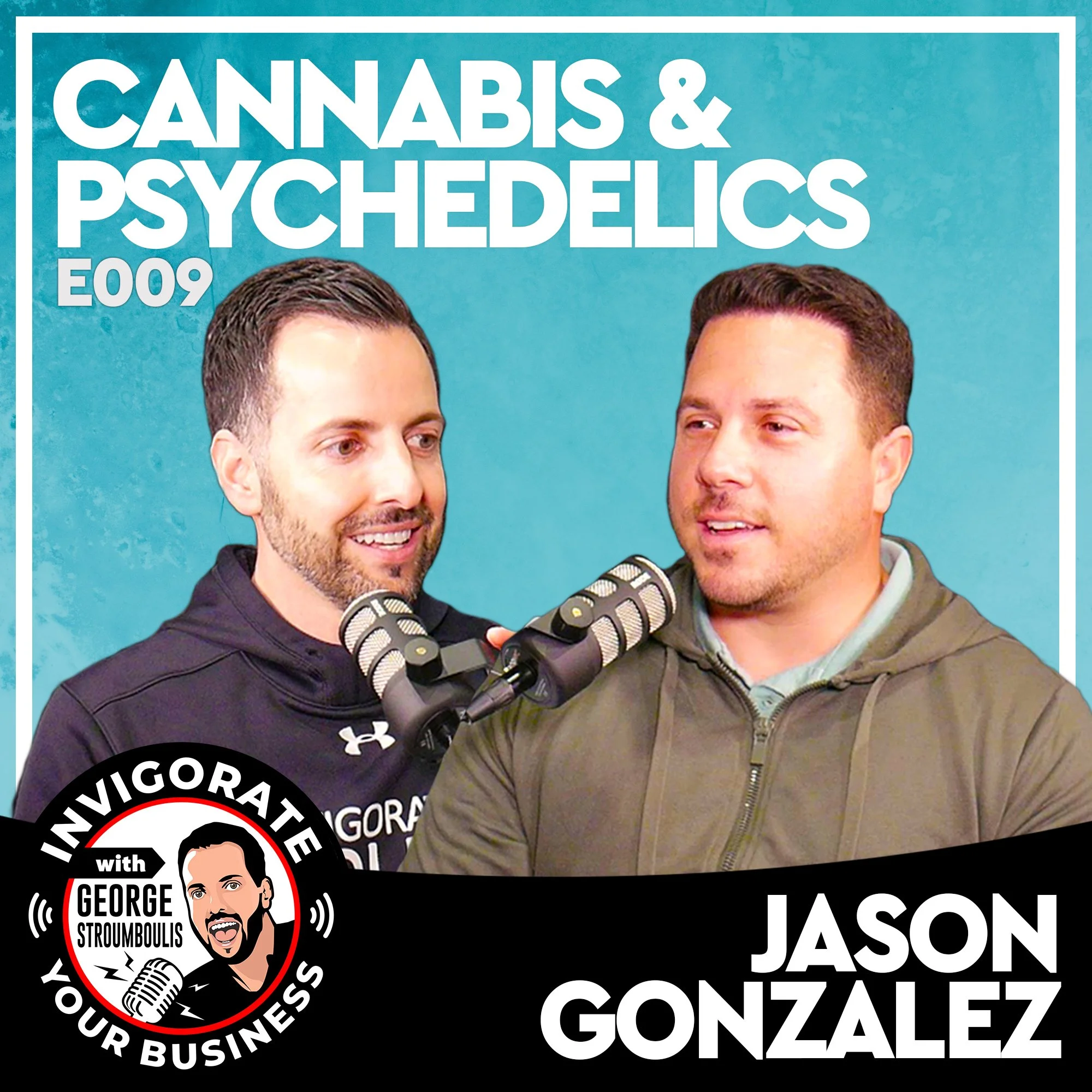
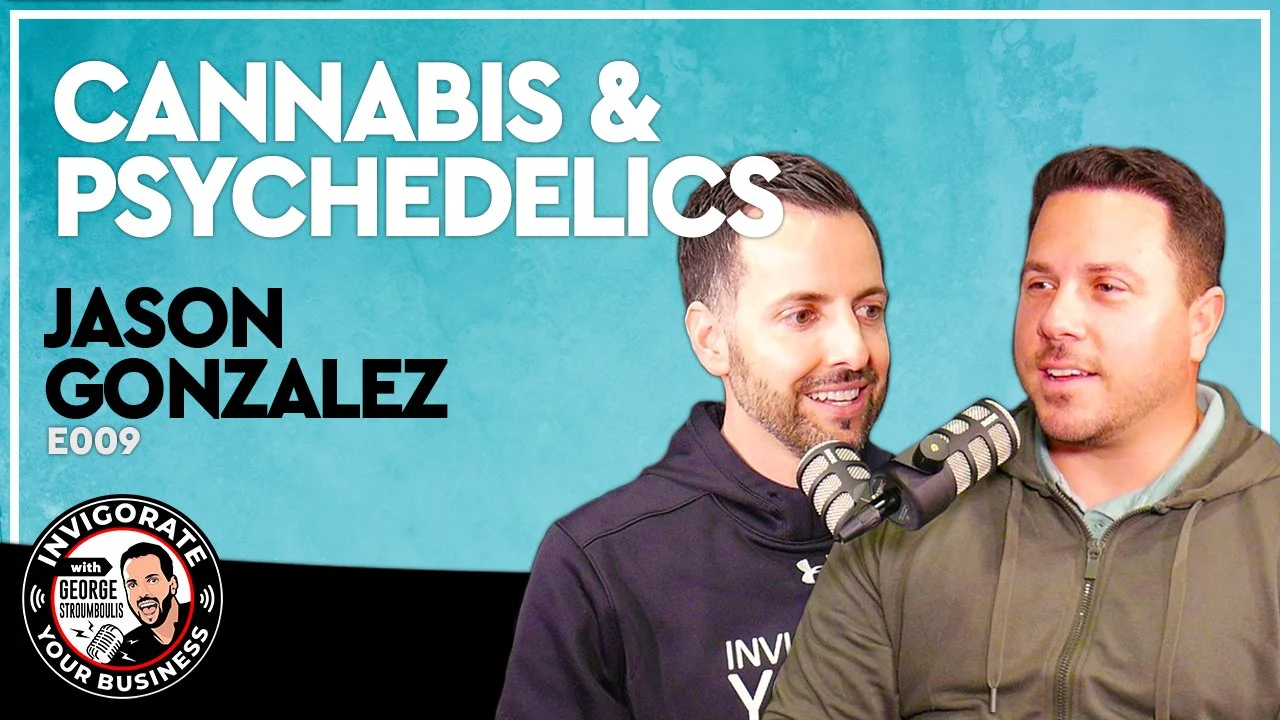
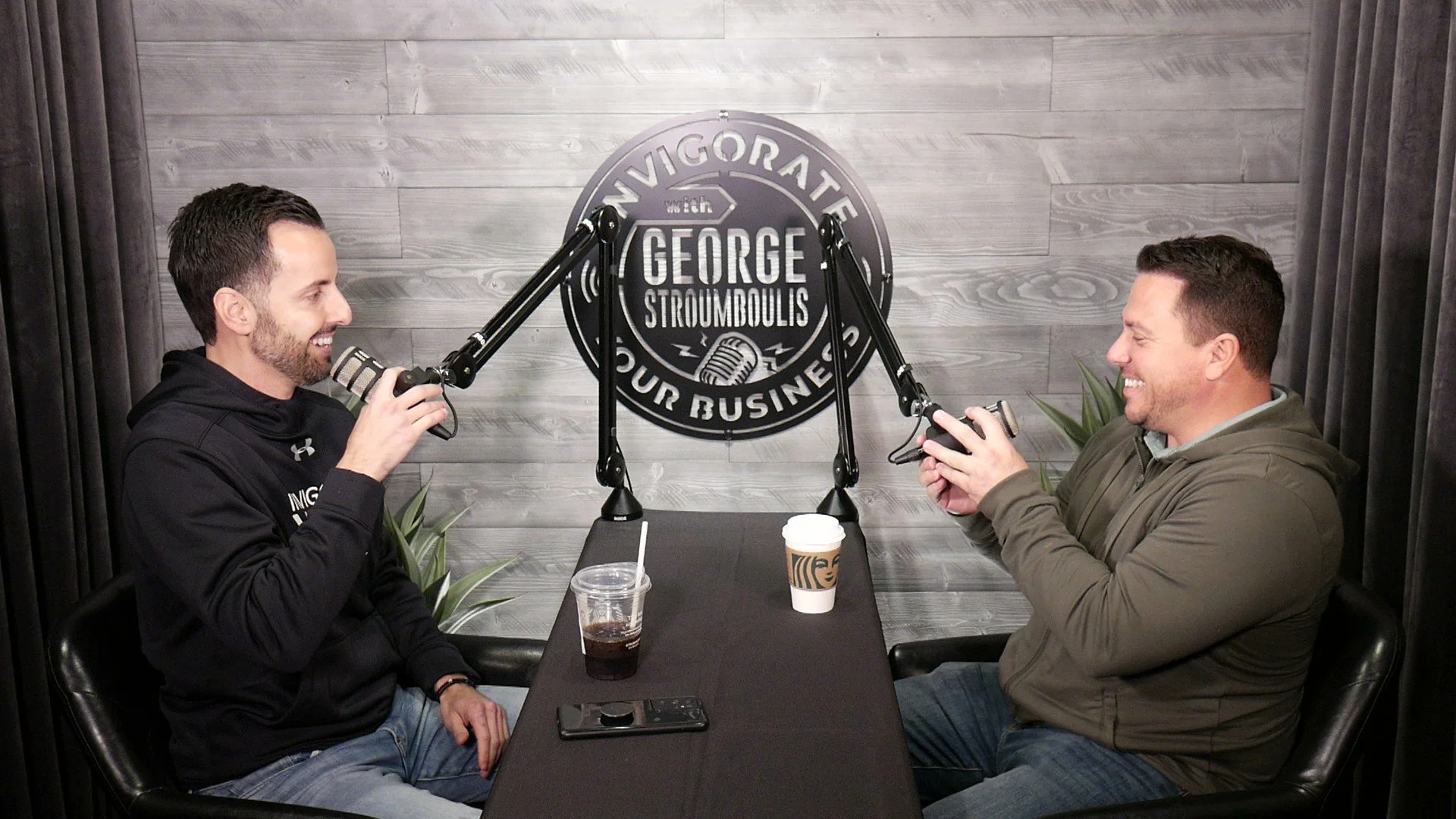
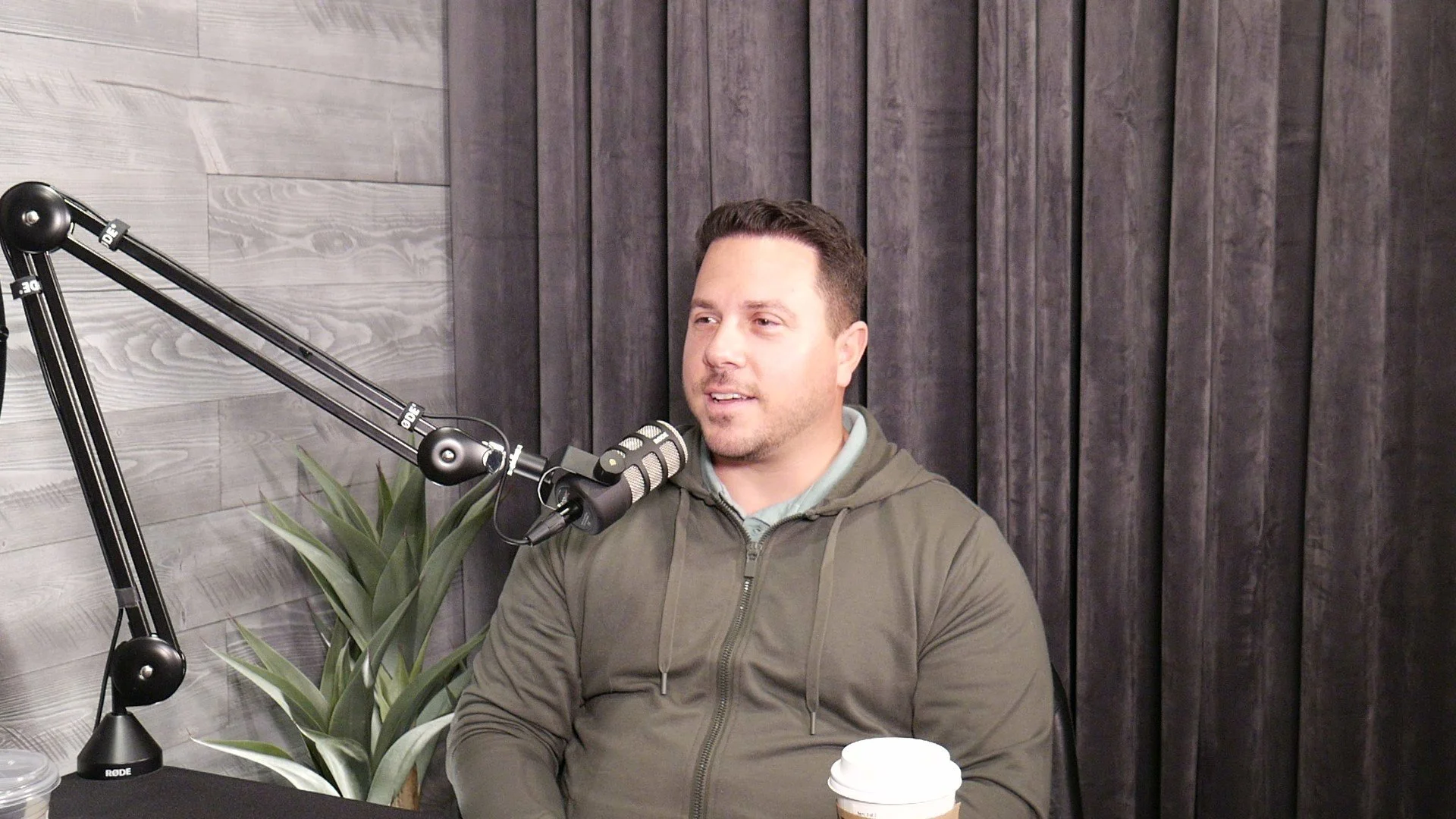
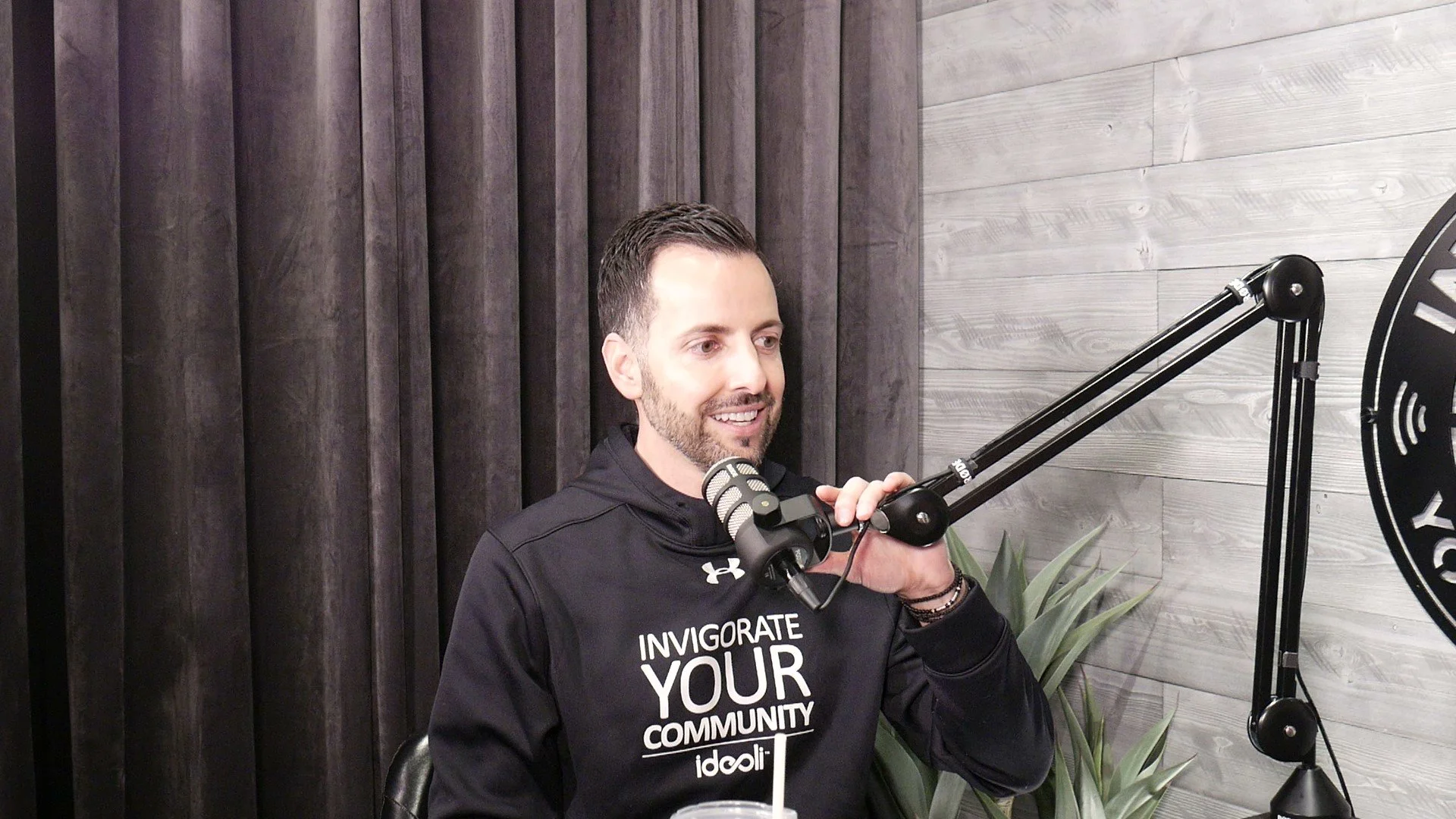
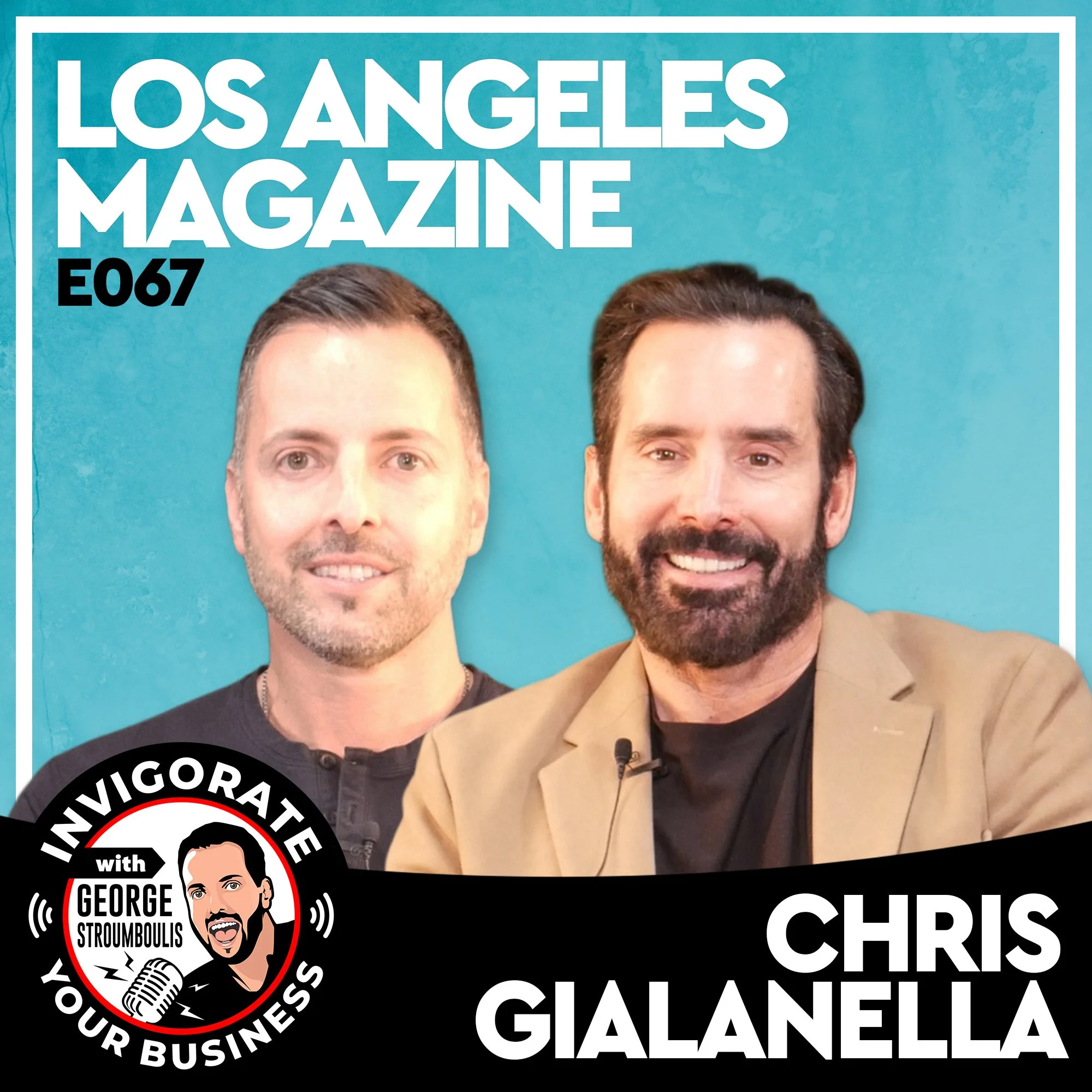
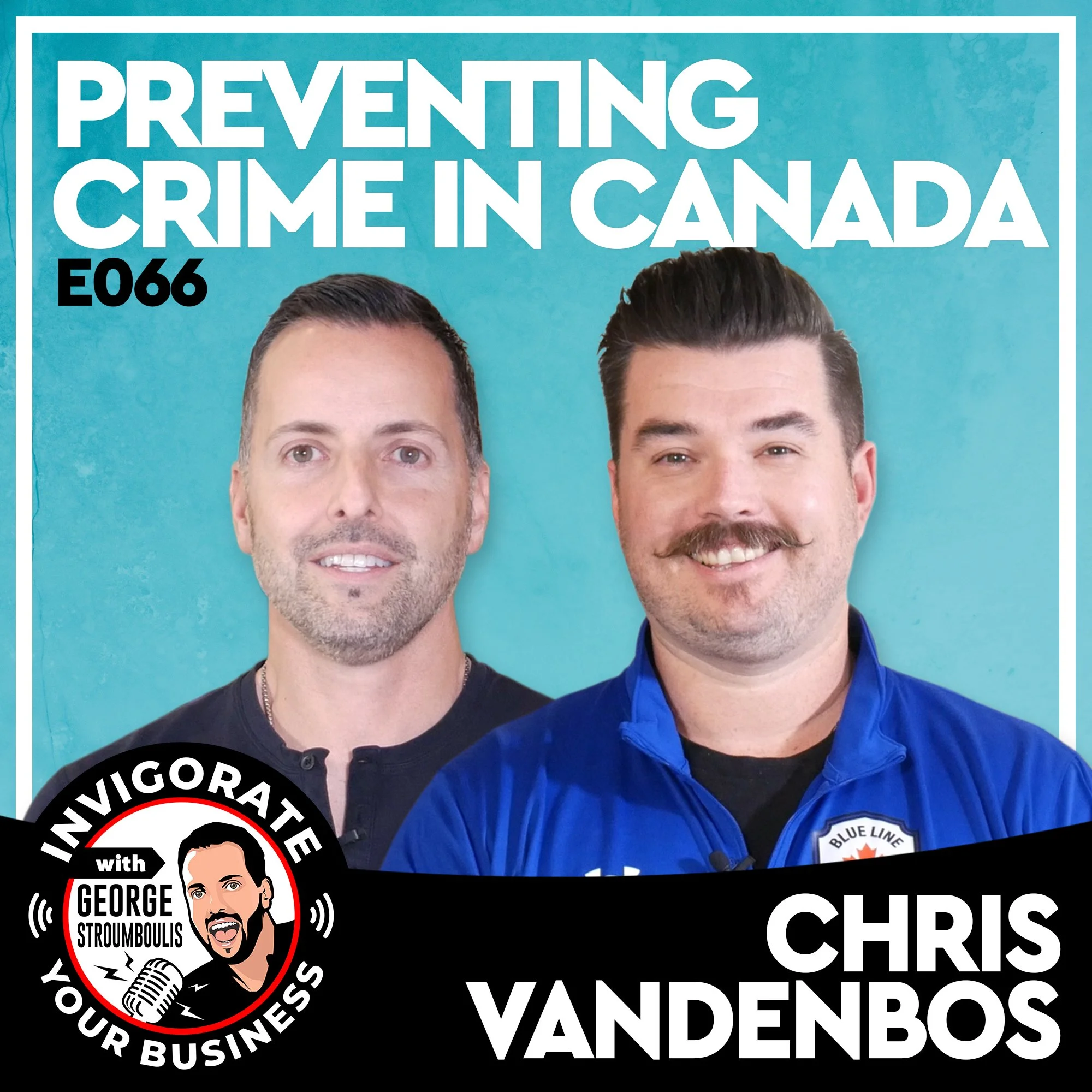
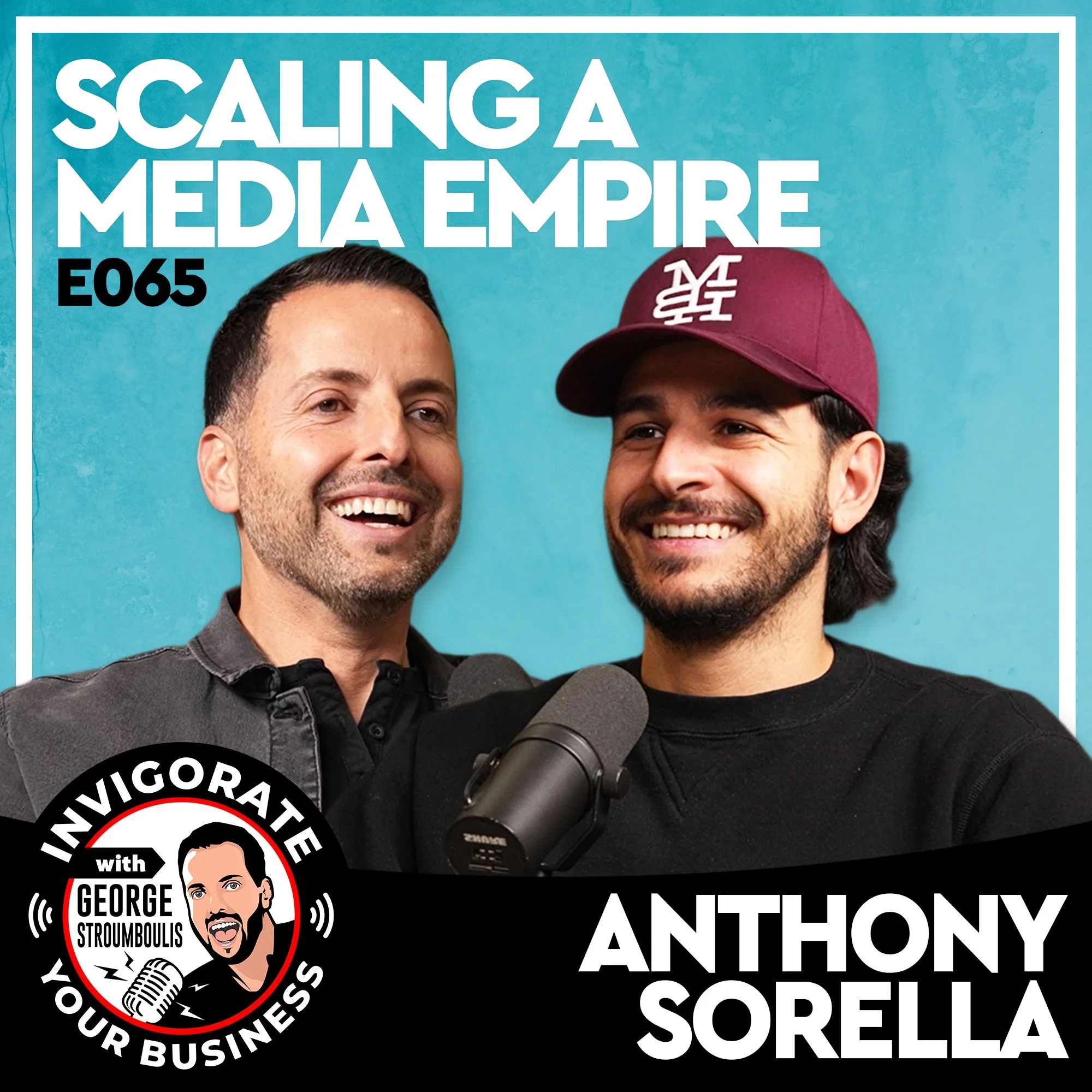
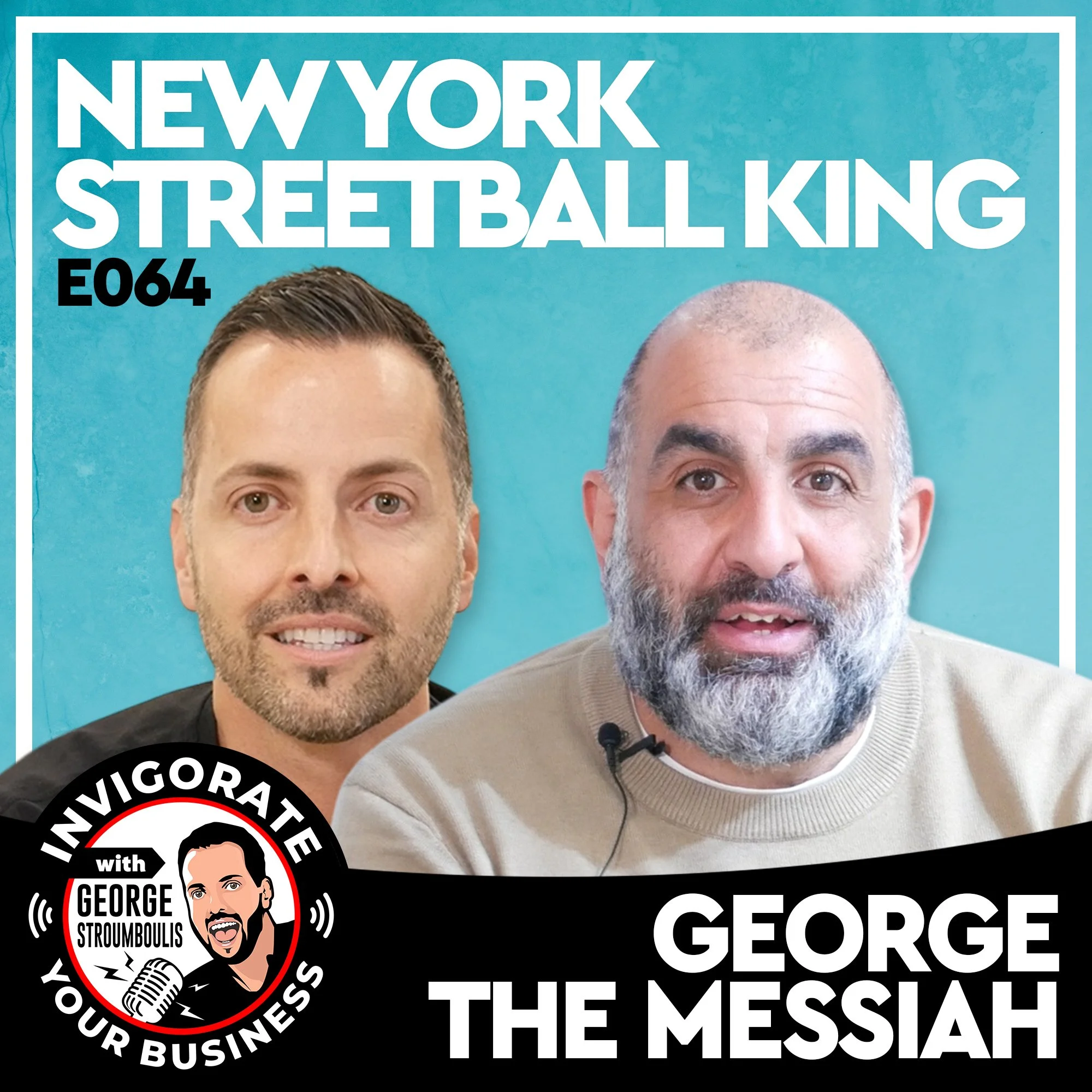
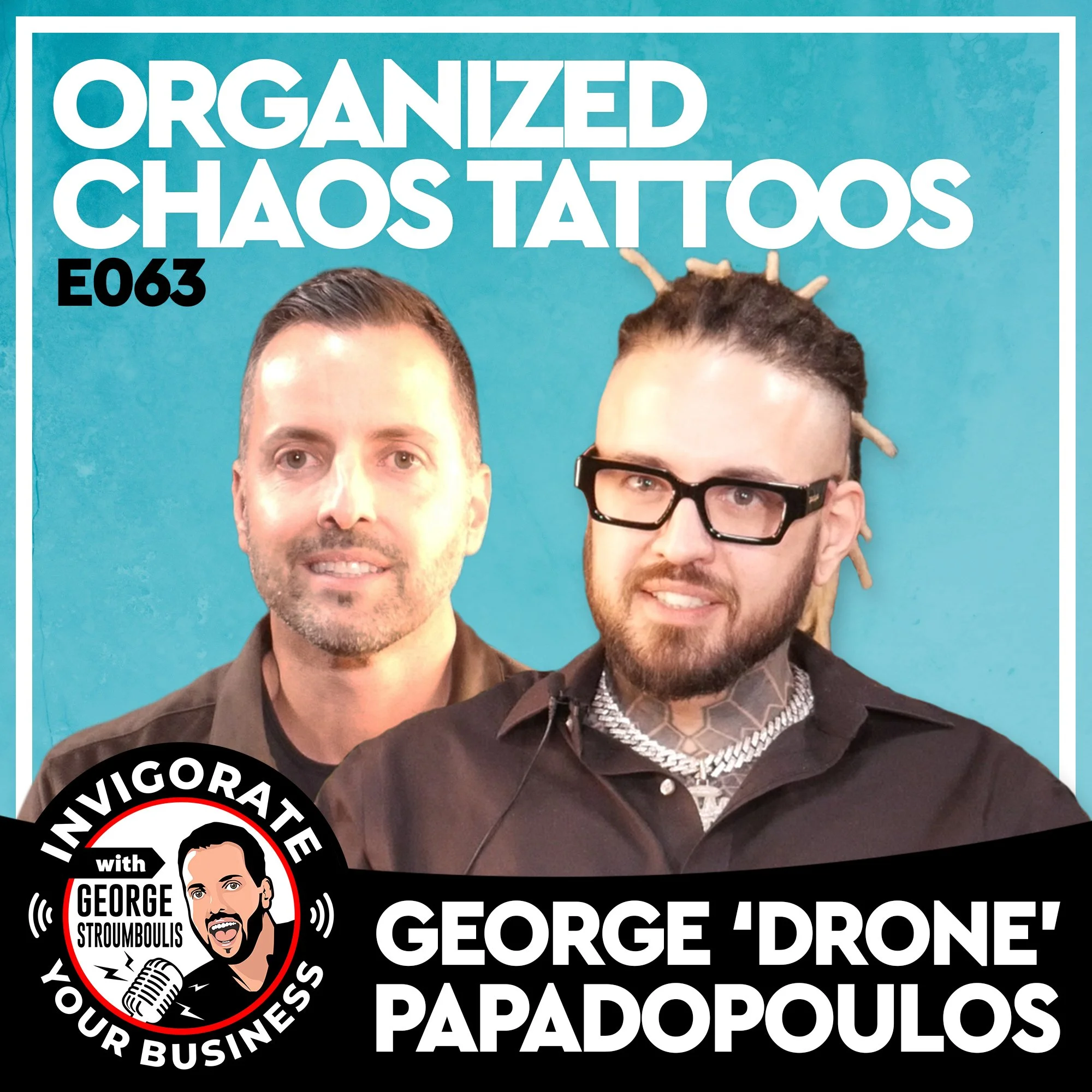

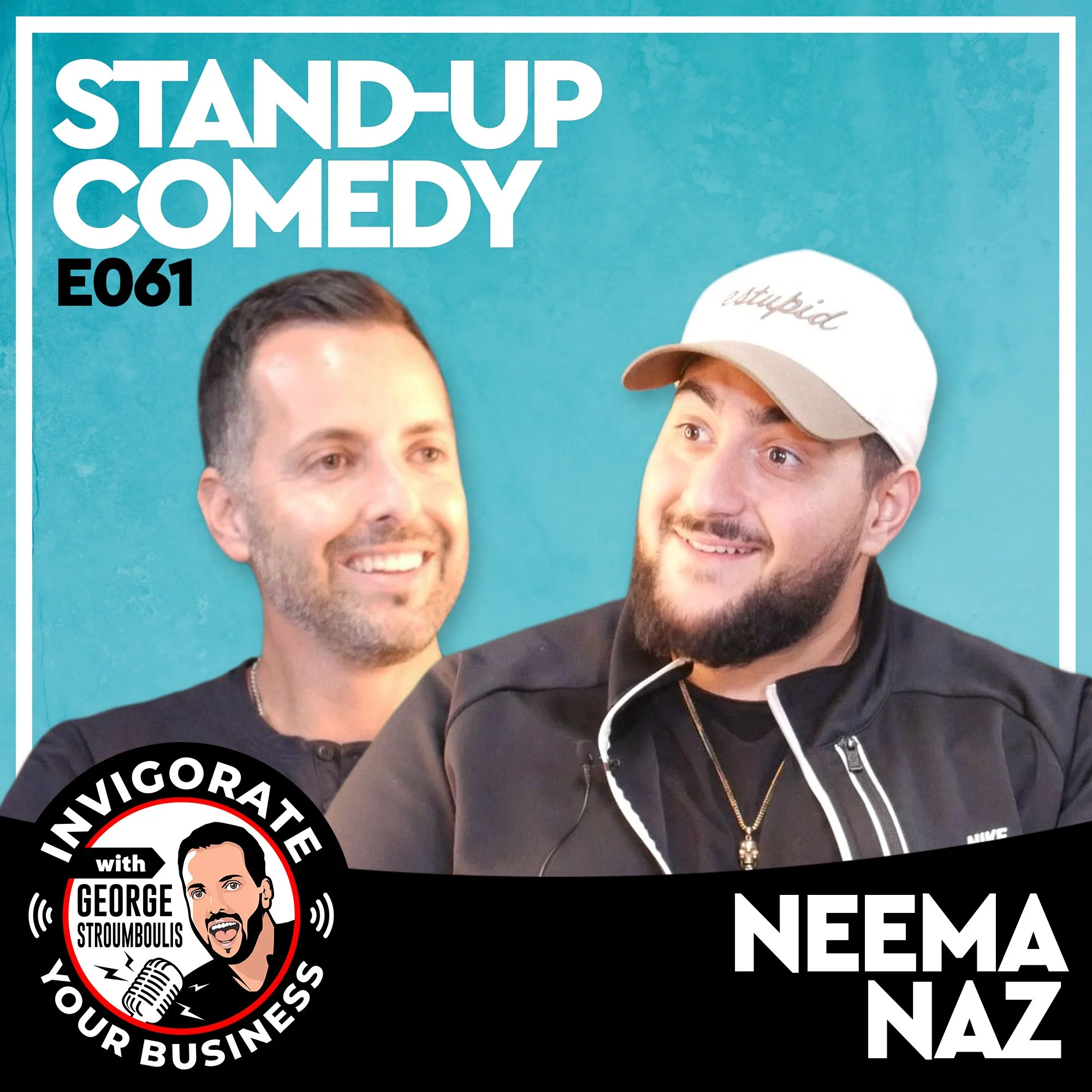
George Stroumboulis sits down with Eric Papachristos - Boston restaurateur, co-founder and CEO of A Street Hospitality, and one of the city’s most influential voices in dining and development. They dive into becoming a major force in Boston hospitality, the story behind building standout restaurant concepts, and the pressures of leading a fast-growing team.